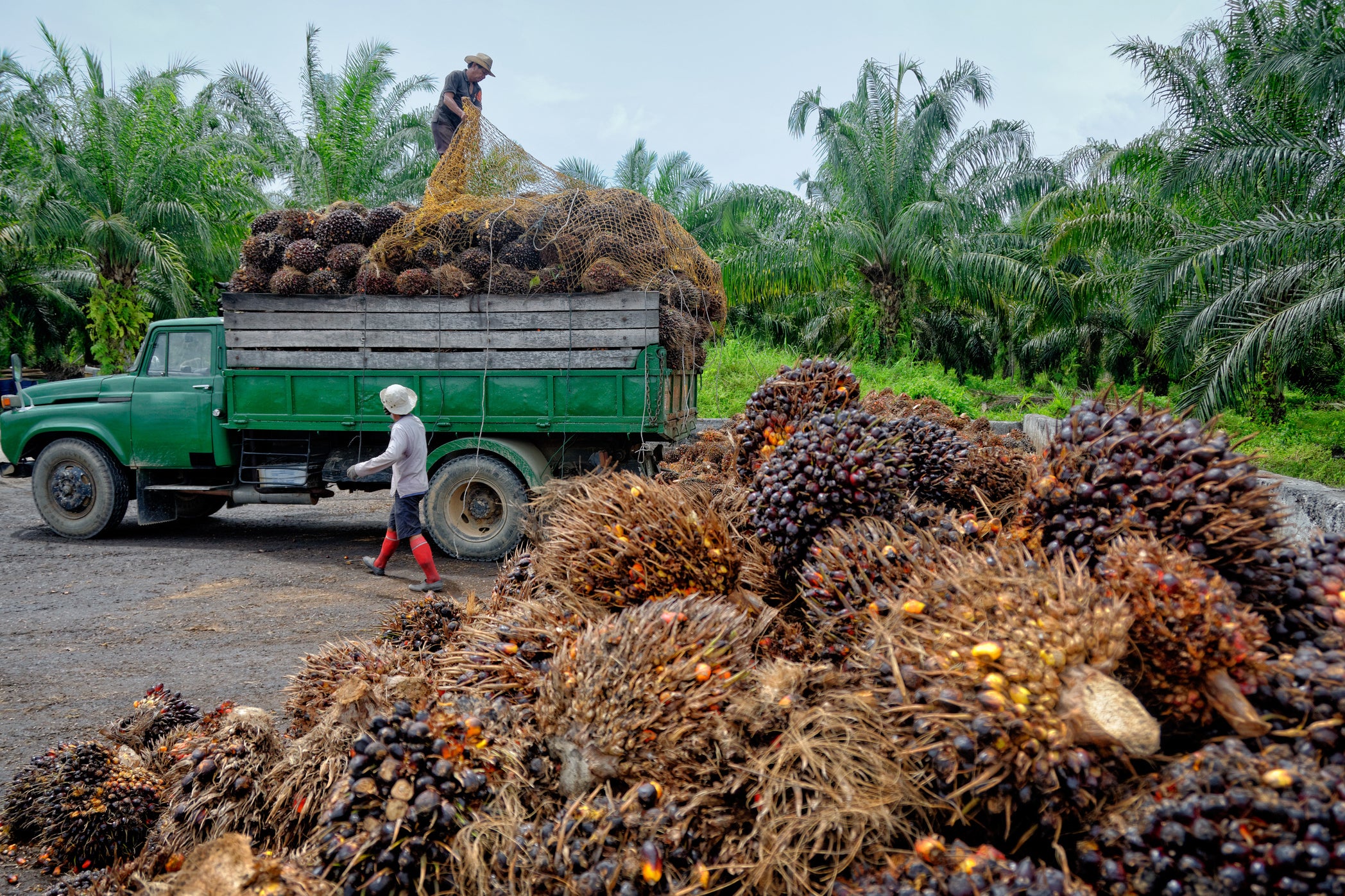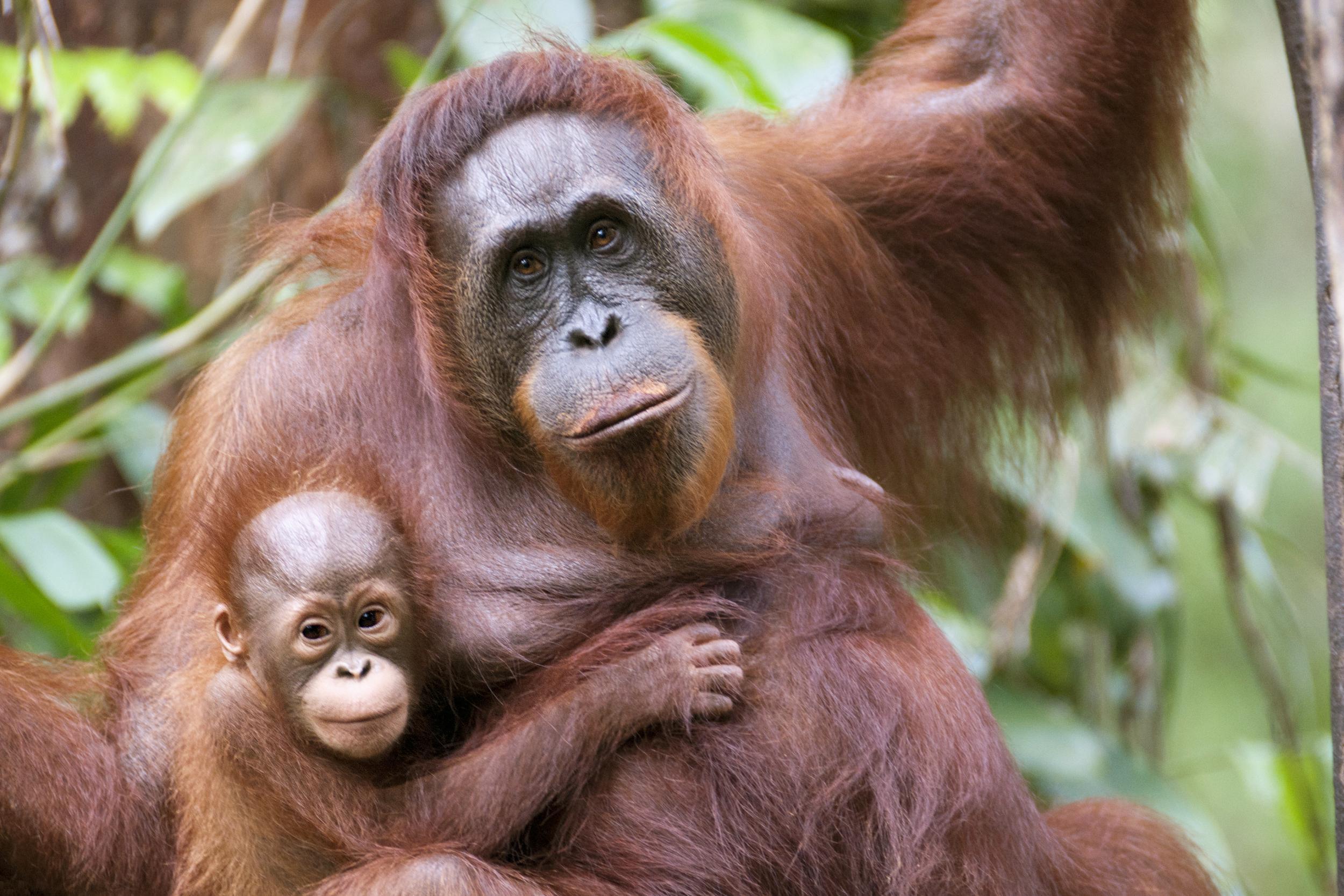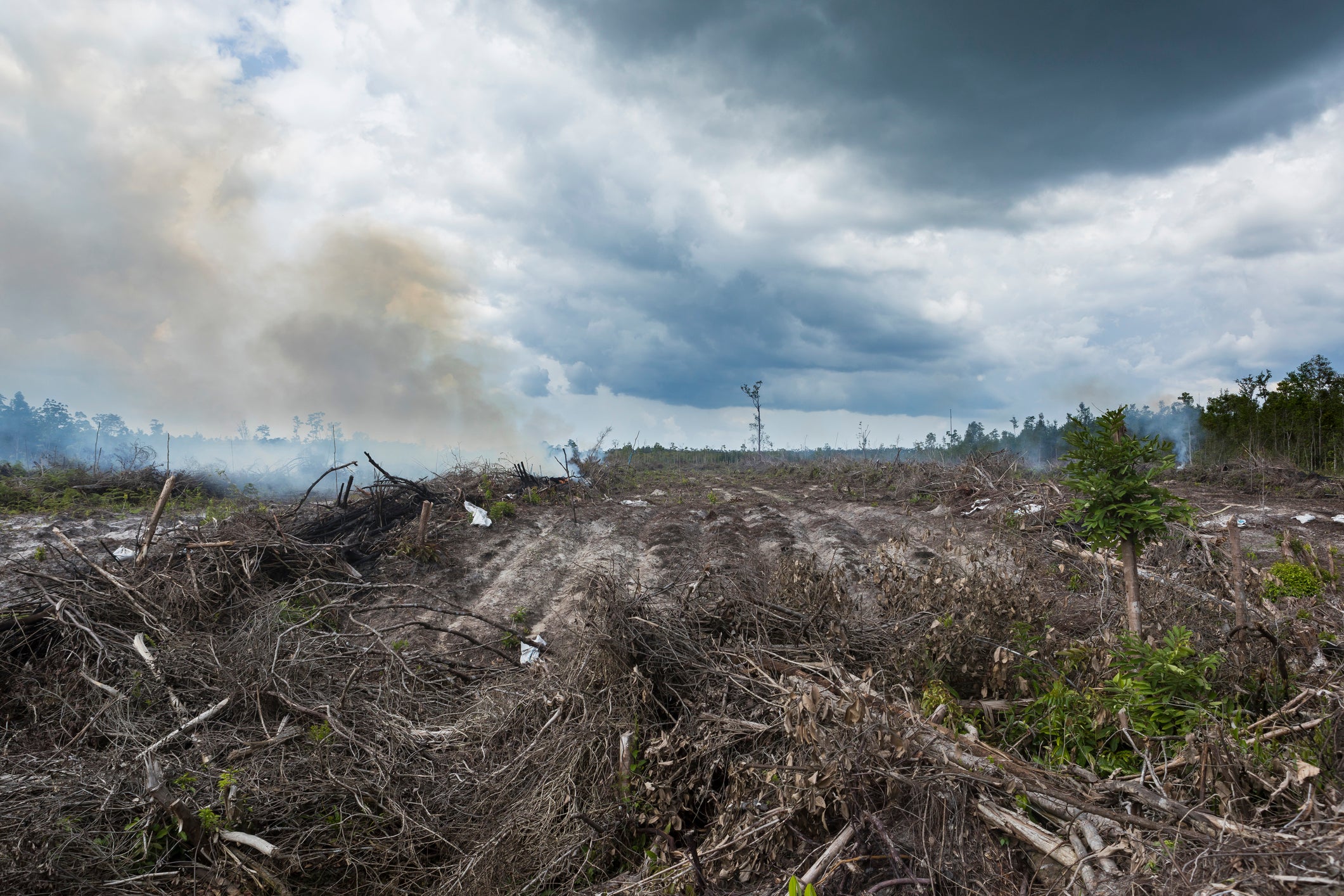The reasons why palm oil is so controversial
The increasing demand for palm oil is leading animals to extinction

Your support helps us to tell the story
From reproductive rights to climate change to Big Tech, The Independent is on the ground when the story is developing. Whether it's investigating the financials of Elon Musk's pro-Trump PAC or producing our latest documentary, 'The A Word', which shines a light on the American women fighting for reproductive rights, we know how important it is to parse out the facts from the messaging.
At such a critical moment in US history, we need reporters on the ground. Your donation allows us to keep sending journalists to speak to both sides of the story.
The Independent is trusted by Americans across the entire political spectrum. And unlike many other quality news outlets, we choose not to lock Americans out of our reporting and analysis with paywalls. We believe quality journalism should be available to everyone, paid for by those who can afford it.
Your support makes all the difference.[This article was first published in 2018]
When it comes to cooking oils, palm oil is typically considered the most controversial of the options - for both health and environmental reasons.
Palm oil is an edible vegetable oil that comes from the fruit grown on the African oil palm tree.
The trees, which were previously found only in Africa, are now grown in Asia, North America and South America - coinciding with the increasing demand for the versatile oil.
The oil is often found in products such as bread, ice cream, and other processed foods, as it is trans-fat free, as well as some cosmetics such as makeup and soap.
However, there is a debate over whether consumption of palm oil is associated with health risks or benefits, despite it being free of trans-fat.
Is palm oil bad for you?
Palm oil has a high saturated fat content, which can be harmful to cardiovascular health. However, one study found that, when consumed as part of a balanced diet, “Palm oil does not have incremental risk for cardiovascular disease.”
The vegetable oil is also a great source of tocotrienols, a form of vitamin E - an “antioxidant that provides protection to your cells and that can reduce your risk of certain health problems such as heart disease and cancer,” according to Livestrong.
Despite the benefits, other oils are recommended for use in cooking such as olive oil.
Is palm oil bad for the environment?
The main issue with palm oil is it's extremely harmful impact on the planet.
To produce palm oil, the fruit is collected from the trees, which can live an average of 28 to 30 years.
However, once the trees grow too high, making it difficult to reach the fruit, they are cut down to make room for new trees - which contributes to deforestation of the rainforest.
To keep up with the incredibly high demand for the cheaply produced oil, acres of rainforest are being cut down - leading to a loss of animal habitat for endangered species.

In the past 16 years, the quest for palm oil has led to the death of an estimated 100,000 orangutans, according to research.
Other animals such as elephants, rhinos and tigers are also at risk due to deforestation.
The conversion of rainforest into plantations also contributes to climate change, according to the World Wide Fund for Nature (WWF), as the process releases high amounts of carbon emissions into the air.
Is there a way to avoid using harmful palm oil?
Unfortunately, it can be difficult to avoid using products with palm oil as its use is now so common across the world.

To lessen the impact, looking for products that only contain sustainable palm oil is a good start.
If you aren’t sure whether a company uses palm oil as an ingredient, the WWF has a rating tool for brands that shows if they are using sustainable palm oil.
Join our commenting forum
Join thought-provoking conversations, follow other Independent readers and see their replies
0Comments